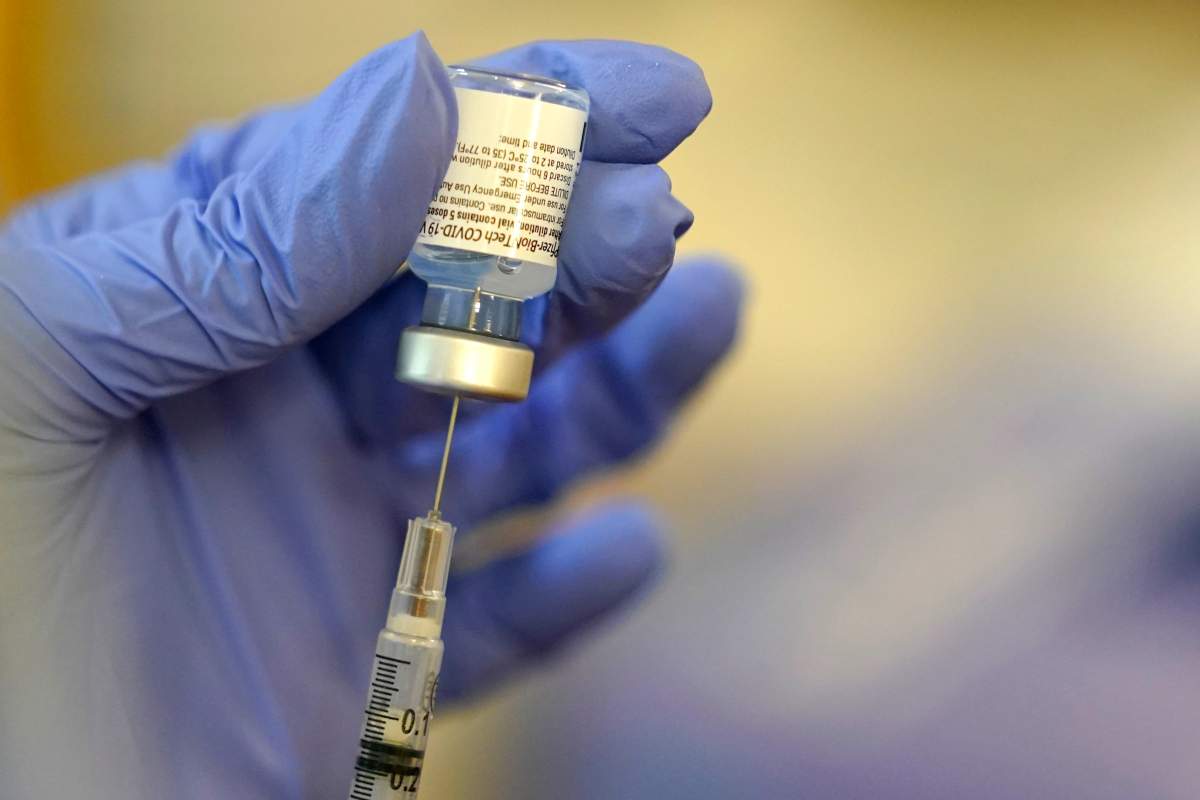A day after Canada officially reported partially immunizing 50 per cent of residents against COVID-19, more provinces stepped up efforts to add younger age groups to the vaccinated ranks.

Ontario on Sunday became the latest province to open vaccine appointments to kids 12 and over through the province’s booking system.
Those wanting to book can do so through the provincial online portal or call centre, as well as through pharmacies offering the Pfizer-BioNTech shot, the province said.
While some youth had previously been able to obtain a vaccine through pop-up clinics or initiatives spearheaded by regional public health units, Sunday’s news made access more equitable across the province.
In Quebec, there were long lineups outside a walk-in vaccine centre in Montreal that opened its doors to the 12 to 17 age group over the weekend.
The province will formally open its booking system to youth 12 and up on Tuesday, but a spokesman for the local health authority said officials at the clinic west of downtown decided not to turn away teens that showed up for walk-ins.
By 2 p.m., the clinic reported it was out of available doses for the day, despite having ordered 500 extra to meet demand.
Efforts to target younger residents came amid a general acceleration in the national immunization drive.
Canada’s chief public health officer wrote on Twitter on Sunday that more than 2.5 million Canadians received a dose of a COVID-19 vaccine between May 9 and May 15. More than 19 million Canadians, or half the national population, had received at least an initial dose of vaccine as of Saturday, though less than five per cent have been fully immunized with two shots.

Get breaking National news
Several other provinces have already expanded vaccine eligibility to those 12 and over, including Newfoundland and Labrador, Saskatchewan, Manitoba and Alberta.
As provinces worked to inoculate young people, Saskatchewan announced Sunday that it was also stepping up efforts to get seniors their second doses.
The Saskatchewan Health Authority reported that as of Monday, anyone 80 and over can book a second dose, along with cancer and organ transplant patients and those who were vaccinated on or before March 1.
Nationally, new COVID-19 cases continued to trend below the third-wave peaks reported in mid-April, although case counts remained high in several provinces.
Manitoba reported 461 new COVID-19 infections and one additional death as the five-day test-positivity rate remained high at 14.5 per cent provincially and 16.7 per cent in Winnipeg.
Newfoundland and Labrador reported 23 new confirmed cases of COVID-19, up sharply from the four reported a day earlier. The province is currently grappling with a cluster in the Central Health region.
Provincial public health authorities advised against nonessential travel in and out of the part of the province between Lewisporte and Summerford in an effort to limit further spread.
Nova Scotia reported 74 new cases as well as its 78th and 79th death of the pandemic in what Premier Iain Rankin described as a “tragic weekend” for the province.
“The hearts of all Nova Scotians are with the families and friends who are grieving the loss of loved ones,” he said in a statement.

“Please make decisions this weekend that help stop the spread of this virus so we can prevent more Nova Scotians from having to experience such grief.”
The province’s chief medical officer of health said Nova Scotia had reported five deaths in the last three days, a statistic that hits hard in the small, tight-knit province.
The situation appeared more hopeful in Ontario and Quebec, where cases have been slowly declining from third-wave highs.
Ontario reported just under 1,700 new cases, while Quebec fell below the 500 mark for the first time since last September.
Saskatchewan reported 116 new cases and one additional death on Sunday, while New Brunswick reported 14 new cases.
Alberta, meanwhile, counted 563 added cases and six more deaths.








Comments
Want to discuss? Please read our Commenting Policy first.